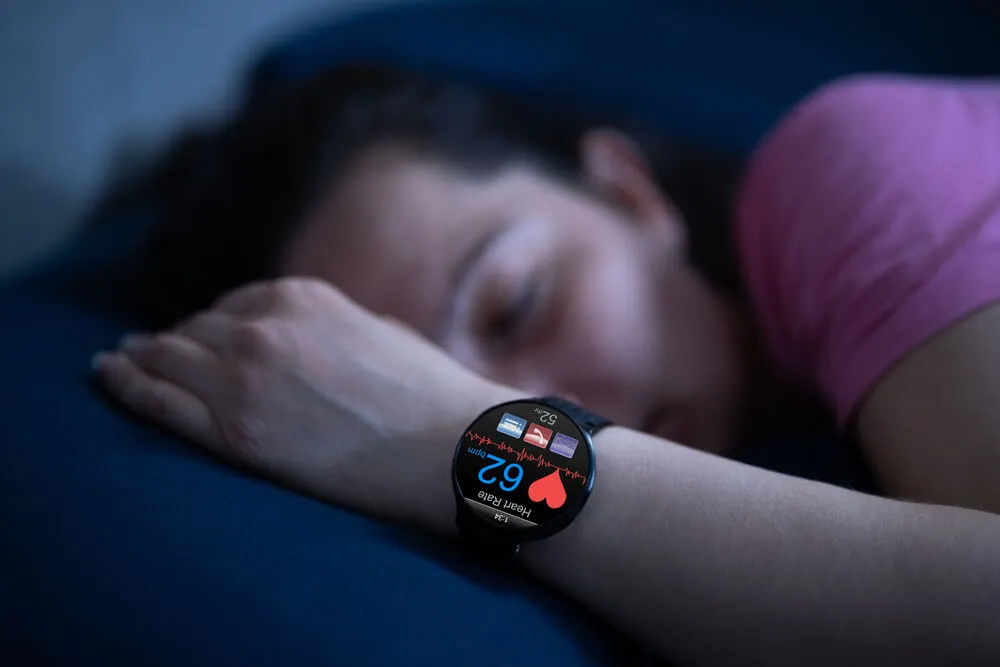Do Sleep Trackers Work? 8 Tips from Doctors

Do Sleep Trackers Work? 8 Tips from Doctors
In a world where we’re constantly bombarded with information, sleep is often the first thing to take a hit. You’ve probably heard about sleep trackers—those nifty gadgets that promise to help you understand your sleep patterns better. But do they really work? Let’s dive into the science and get some expert opinions on how these devices can impact your sleep quality.
What Are Sleep Trackers?
Sleep trackers are wearable devices or apps designed to monitor your sleep patterns. They collect data on how long you sleep, how often you wake up, and even the different stages of sleep you experience. With the rise of health technology, these devices have become increasingly popular among health-conscious consumers and fitness enthusiasts alike.
But here’s the million-dollar question: can they actually improve your sleep?
Expert Insights on Sleep Trackers
According to sleep specialists, sleep trackers can be beneficial, but they’re not a magic bullet. Dr. Jane Smith, a sleep medicine expert, explains, “While sleep trackers provide valuable data, they should be used as a tool for awareness rather than a definitive solution.” This means that while they can help you identify patterns, they won’t necessarily solve underlying sleep disorders.
Here are 8 tips from doctors on how to effectively use sleep trackers to improve your sleep quality:
- Set Realistic Expectations
- Understand that sleep trackers are not perfect. They can give you a general idea of your sleep patterns, but they may not always be 100% accurate.
- Use Data Wisely
- Analyze your sleep data to identify trends. For instance, if you notice you sleep better on weekends, consider what changes you can make during the week.
- Combine with Good Sleep Hygiene
- Sleep trackers are most effective when combined with good sleep practices. Keep a consistent sleep schedule, create a relaxing bedtime routine, and limit screen time before bed.
- Consult with a Professional
- If you’re struggling with sleep issues, don’t hesitate to consult a healthcare provider. They can help interpret your sleep data and suggest appropriate interventions.
- Stay Informed
- Keep up with the latest research on sleep health. Understanding the science behind sleep can empower you to make better choices.
- Avoid Over-Reliance
- Don’t let your tracker dictate your life. If you find yourself obsessing over the numbers, it might be time to take a step back.
- Experiment with Features
- Many trackers come with additional features like guided breathing exercises or sleep sounds. Experiment to see what helps you relax and fall asleep faster.
- Track Other Factors
- Consider tracking factors like caffeine intake, exercise, and stress levels. These can all influence your sleep quality and provide a more holistic view of your health.
The Benefits of Sleep Tracking
Using a sleep tracker can lead to several benefits. For one, they promote awareness of your sleep habits, which can be eye-opening. Many people are shocked to discover how little sleep they actually get or how frequently they wake up during the night. This newfound knowledge can motivate you to make changes that enhance your sleep quality.
Moreover, sleep trackers can help identify potential sleep disorders. If your data suggests you’re not getting enough deep sleep or you’re waking up frequently, it might be time to consult a doctor for further evaluation.
Addressing Common Concerns
While sleep trackers can be a great tool, they’re not without their drawbacks. Some users express skepticism about the accuracy of the data. It’s important to remember that these devices are not medical instruments; they’re designed for consumer use. If you’re experiencing severe sleep issues, it’s crucial to seek professional help rather than relying solely on a tracker.
Additionally, some individuals may find themselves becoming overly fixated on their sleep data, leading to anxiety rather than improvement. Balance is key—use the data as a guide, but don’t let it control your life.
Final Thoughts
In summary, sleep trackers can be a valuable addition to your sleep health toolkit, especially when used in conjunction with expert advice and good sleep hygiene practices. By understanding how to interpret the data and applying it to your lifestyle, you can take significant steps toward improving your sleep quality.
So, are you ready to give sleep tracking a try? With the right approach, you might just uncover the secrets to a better night’s sleep!





